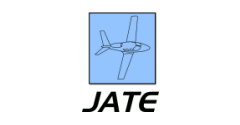Abstract
Lean production began as a new method for creating value through the elimination of waste, continuous process improvement by workers, and fostering respect for people. Despite its success in other industries, the significantly lower production volume, the substantially higher complexity, and the service-oriented nature of aviation maintenance demand significant adaptation of Lean principles to be effective. The lack of a holistic study on Lean adoption for aerospace production and aviation maintenance organizations hinders transformation as the two industries are intertwined in product and characteristics. Lean adoption in aerospace production is hindered by the lingering notion that it is an ‘‘automotive idea,’’ the context of the production plant, and management’s focus on short-term goals rather than the long-term transformation of the plant. Integrated product teams are indispensable as they can accelerate the transition between development and production, and most importantly, bridge the gap between production and maintenance operations. Maintenance, repair, and overhaul organizations use Lean techniques to reduce overall maintenance costs, lower aircraft turnaround times, and improve productivity. The emphasis is placed on optimizing in-house areas with direct product interaction, such as the shop floor, as optimizing the value stream by incorporating the significant unscheduled maintenance demand into the work schedule greatly impacts resource utilization. Surveying the success stories of Boeing, Lufthansa Technik, and FedEx Express has revealed that Lean adoption requires collaboration between all stakeholders: production, service, customers, and education.
Recommended Citation
Lee, Seanan C.
(2023)
"A Literary Survey on the Challenges of Adopting Lean in Aerospace Production and Aviation Maintenance,"
Journal of Aviation Technology and Engineering:
Vol. 12:
Iss.
1, Article 4.
Available at: https://doi.org/10.7771/2159-6670.1243


